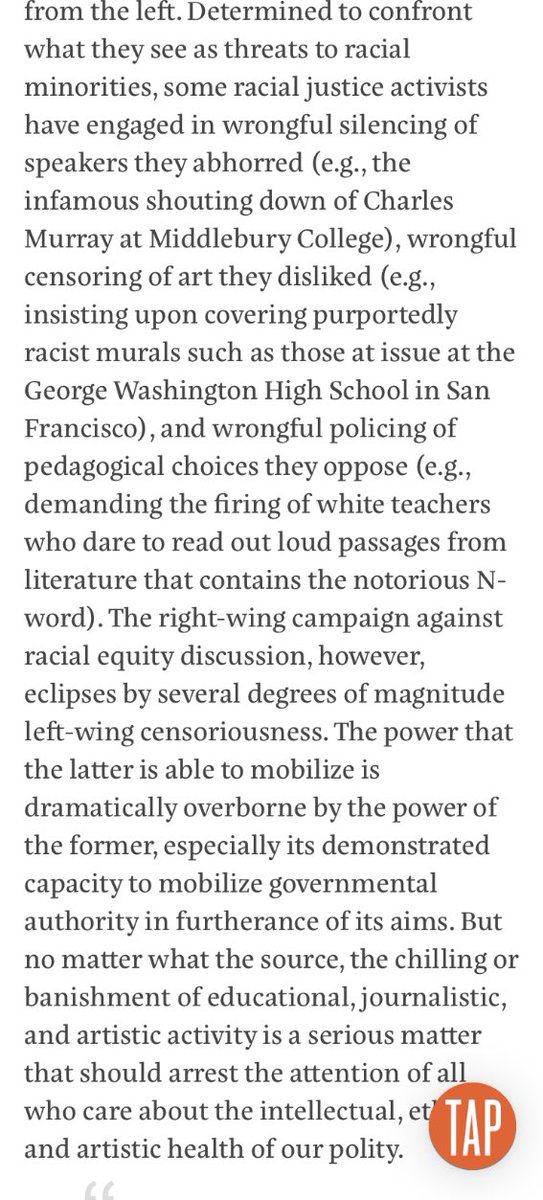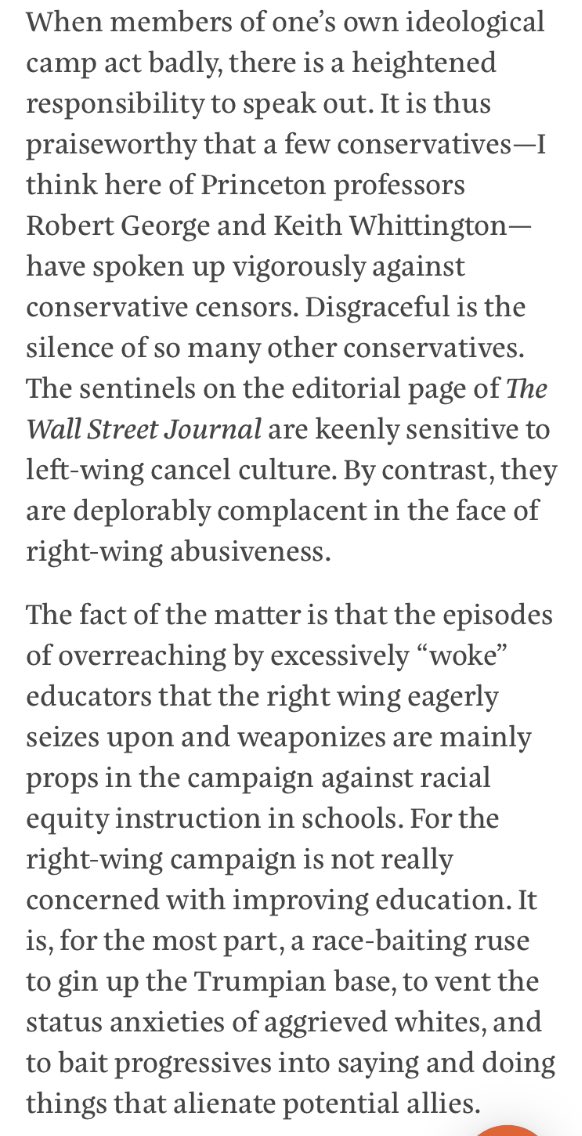
I'm entirely persuaded that Miller is an anti-Semite. I'm much less convinced that firing him wasn't a violation of academic freedom. Let me give a few quick words about why.
https://twitter.com/bengidley/status/1444719468953968651
Last February, during a video conference on the UK Labour Party and (ironically) free speech, Miller described the criticism he's received from his own university's Jewish students and suggested that they were "pawns" of Israel.
Understandably, there was huge backlash. Denunciations in Parliament. Accusations of a hate crime. The whole sha-bang.
timesofisrael.com/uk-police-acad…
timesofisrael.com/uk-police-acad…
Anyway, while Miller has made a thousand reprehensible comments, it was this one about his school's own students that critics are now pointing to in order to reconcile his termination with their support for academic freedom. I don't think that'll wash.
The closest analogy to Miller's case I can think of is John McAdams, the "Marquette Warrior", who was suspended and threatened with loss of tenure because of critical comments he made on his personal blog about a grad student at his university.
theatlantic.com/education/arch…
theatlantic.com/education/arch…
Above, @conor64 makes the case for why critical language, even harsh criticism, of a student by a prof ought to be protected, so long as the prof isn't directly teaching the student. And I think that arg. is doubly true when the criticism is about an important political issue.
@conor64 For the opposite case (that when profs harshly criticize students in their university, they're violating their professional responsibilities and can be disciplined), see this smart piece from @tweetertation.
newrepublic.com/article/121072…
newrepublic.com/article/121072…
@conor64 @tweetertation What you think about the Marquette Warrior case ought to influence how you feel about Miller's termination, even though (to repeat myself) Miller really is an anti-Semite.
@conor64 @tweetertation More generally, I can think of all sorts of situations when it would be appropriate -- maybe even good! -- for faculty to harshly criticize their own institution's students. Even up to the point of calling them pawns of a foreign power.
washingtonpost.com/world/angry-ov…
washingtonpost.com/world/angry-ov…
@conor64 @tweetertation In other words, I object to what happened to Miller on principle, but it's hard to feel much sympathy for him as a person.
• • •
Missing some Tweet in this thread? You can try to
force a refresh











